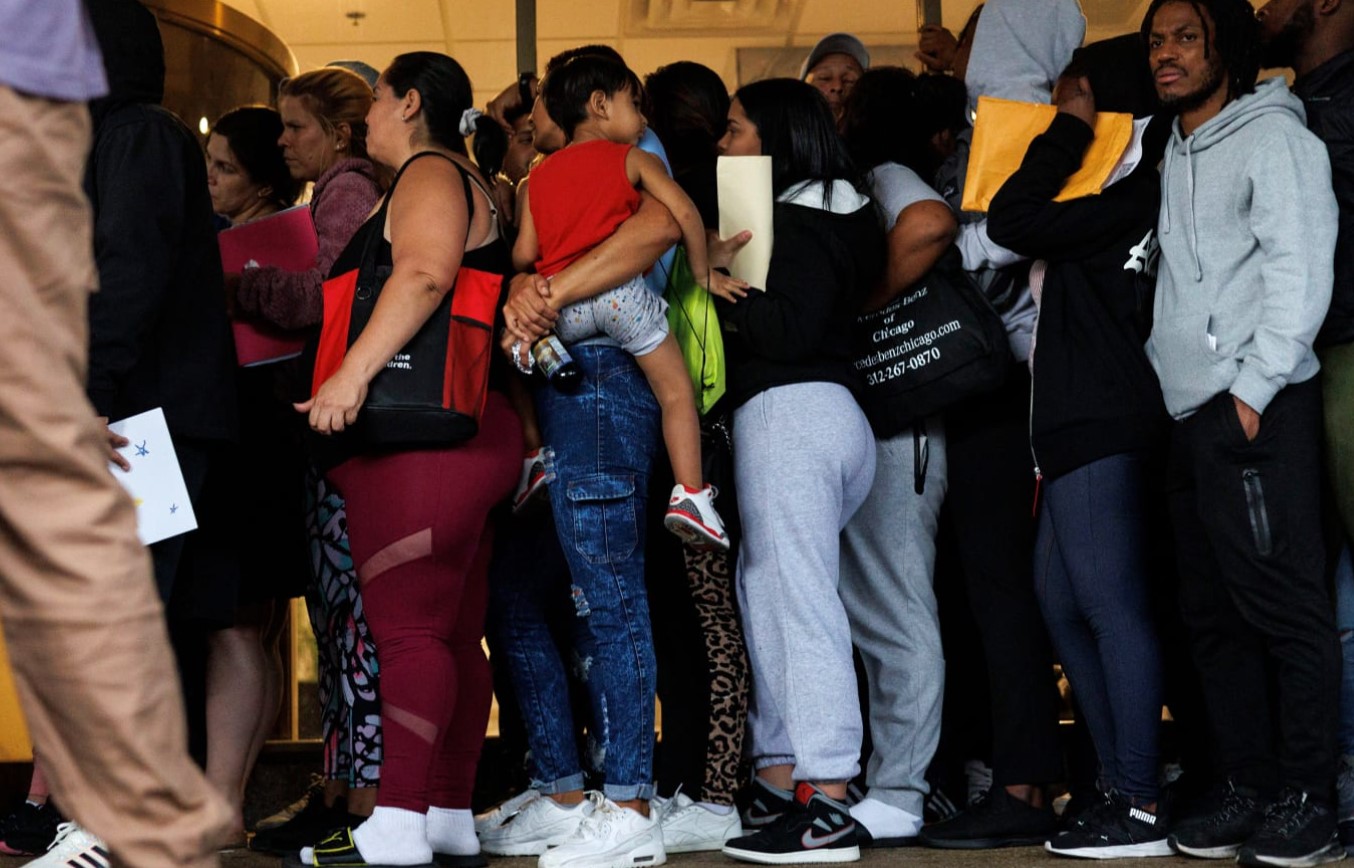Chicago, the host city for the 2024 Democratic National Convention, is facing a migrant crisis that has become a top issue in cities thousands of miles away from the southern border. Illinois Gov. J.B. Pritzker (D) is preparing for up to 25 buses filled with migrants each day. Meanwhile, activists, community leaders, residents, and aldermen are urging a halt to the influx.
The city and state have an obligation to provide humanitarian aid to the migrants, many of whom are fleeing violence and poverty in their home countries. But they are also facing a backlash from Chicago’s Black community, which feels that its needs are being ignored in favor of the newcomers.

According to a Pritzker administration official, the migrant crisis is like COVID without the money. The state passed a budget that did not account for all the costs associated with migrants, and shifted the responsibility to the city when the administration changed. The city, on the other hand, is already dealing with a $733 million budget deficit and a surge in violent crime.
The Black community feels left behind and neglected
Chicago’s Black community, which makes up about 30% of the city’s population, has historically been underserved and suffered from community divestment. The pandemic has exacerbated the racial disparities in health, education, employment, and housing. Many Black residents feel that their voices are not heard by the city and state leaders, who are more focused on accommodating the migrants.
Maze Jackson, principal of the Intelligence Group, a consulting agency based in Chicago focused on elevating “What’s In It For the Black People” says, “The Black community is frustrated because they see resources being allocated to people who just got here yesterday, while they have been here for generations and still don’t have access to quality schools, health care, jobs, or housing.”
Some Black residents have also expressed concern about the safety and security of their neighborhoods, especially on the south side, where many migrants are being housed in an abandoned high school. They fear that the influx of migrants will increase crime, violence, and competition for scarce resources.
The city and state leaders are trying to balance competing interests
The city and state leaders are trying to balance the humanitarian needs of the migrants with the demands of the Black community. They are also trying to avoid a political backlash from both sides of the aisle.
Gov. Pritzker has defended his decision to welcome the migrants, saying that Illinois is and has always been a welcoming state. He has also pledged to work with federal authorities to ensure that the migrants are properly screened and processed. He has also allocated $10 million in emergency funding to help local organizations provide shelter, food, health care, and legal services to the migrants.
Mayor Lori Lightfoot has also expressed her support for the migrants, calling them “our brothers and sisters”. She has also vowed to protect Chicago’s status as a sanctuary city, where local authorities do not cooperate with federal immigration enforcement. She has also announced a $31.5 million plan to expand mental health services for all residents, including migrants.
However, both Pritzker and Lightfoot have also faced criticism from some of their allies and constituents for not doing enough to address the needs of the Black community. Some Black aldermen have called for a moratorium on accepting more migrants until the city can provide adequate services and resources for its existing residents. Some Black activists have also staged protests and rallies to demand more attention and investment from the city and state leaders.
The migrant crisis is part of a larger national issue
The migrant crisis in Chicago is part of a larger national issue that has been fueled by several factors, such as climate change, political instability, economic hardship, and human rights violations in Central America. The Biden administration has been struggling to cope with the unprecedented surge of migrants at the southern border, which reached a 21-year high of 212,672 encounters in July.
The administration has been trying to address the root causes of migration by providing aid and support to the countries of origin. It has also been trying to expedite the processing and resettlement of migrants by working with state and local authorities, as well as non-governmental organizations. However, it has also faced challenges and opposition from some Republican governors, who have accused Biden of creating a border crisis and endangering national security.
The migrant crisis has also become a divisive political issue that could have implications for the upcoming midterm elections in 2022 and presidential election in 2024. Both Democrats and Republicans are trying to appeal to their base voters by taking different stances on immigration policy. The Democrats are generally more supportive of providing humanitarian aid and legal pathways for migrants, while the Republicans are generally more in favor of enforcing border security and restricting immigration.







